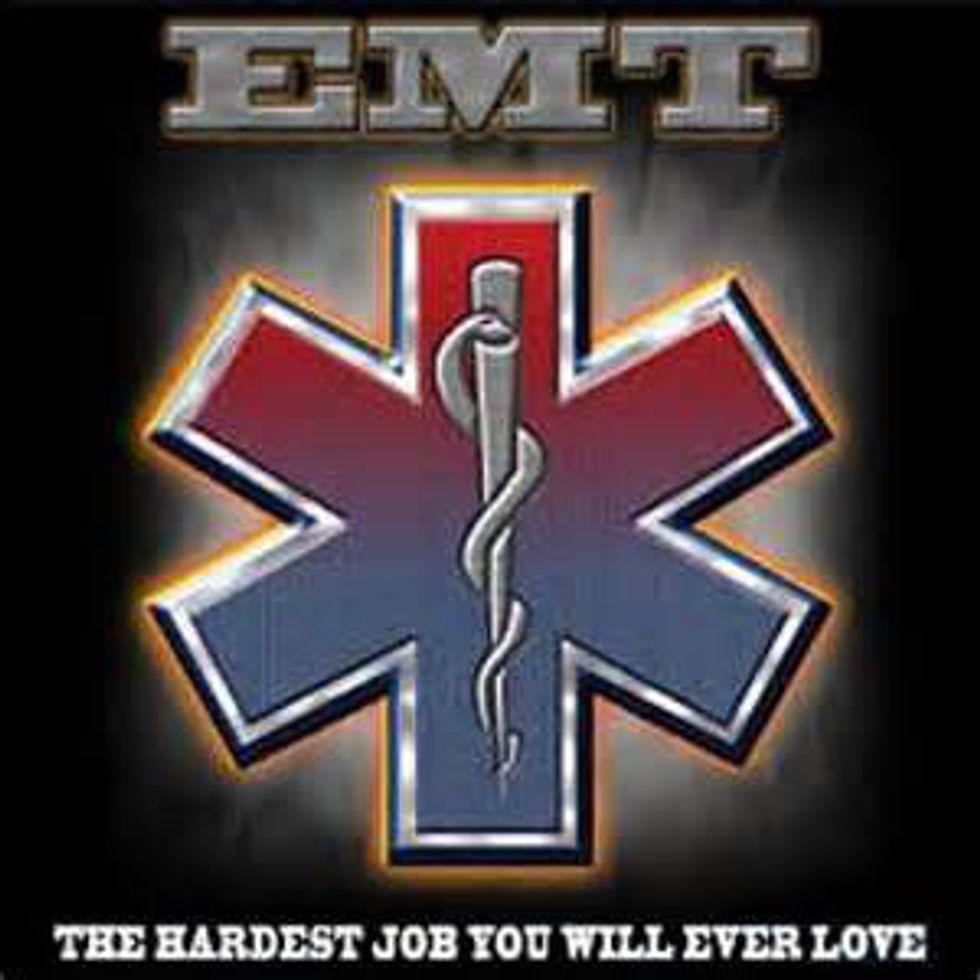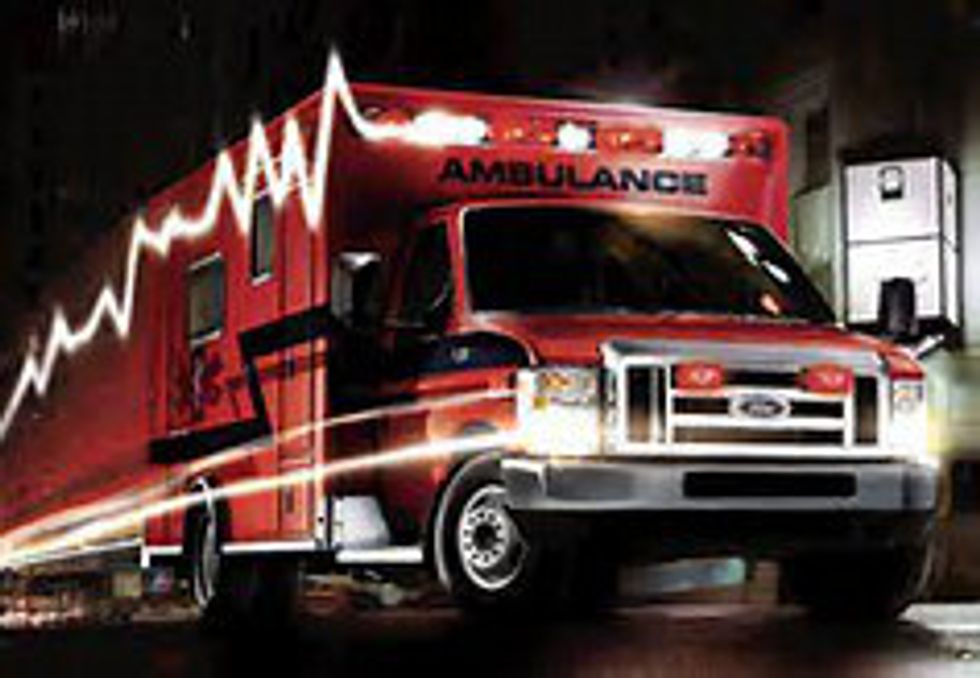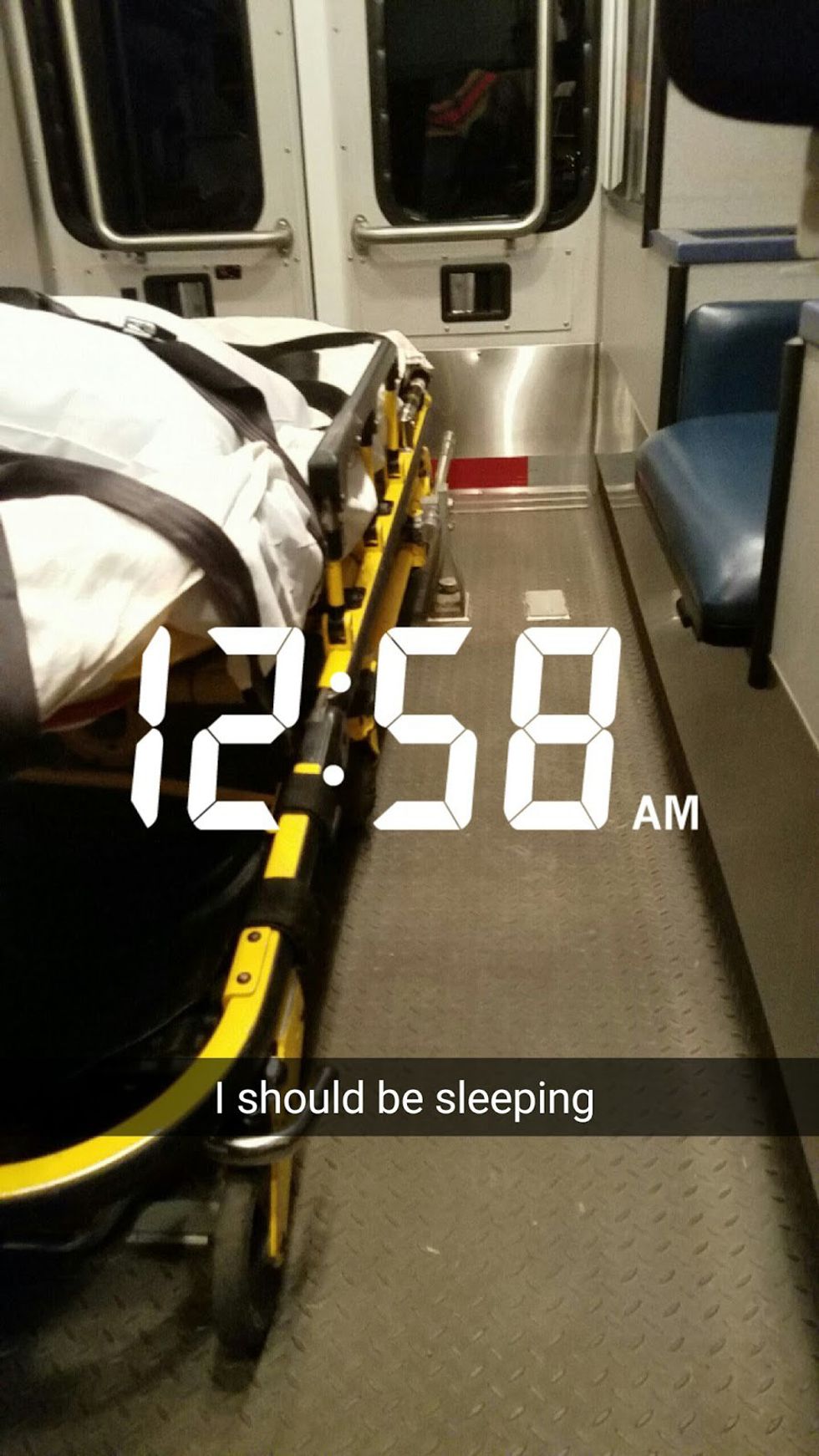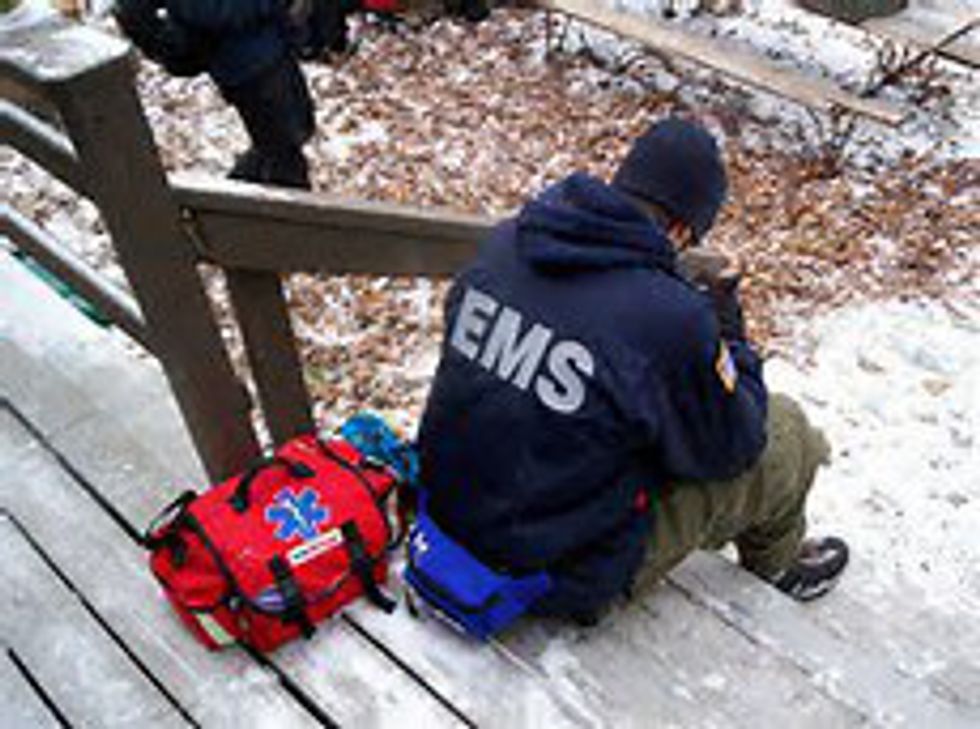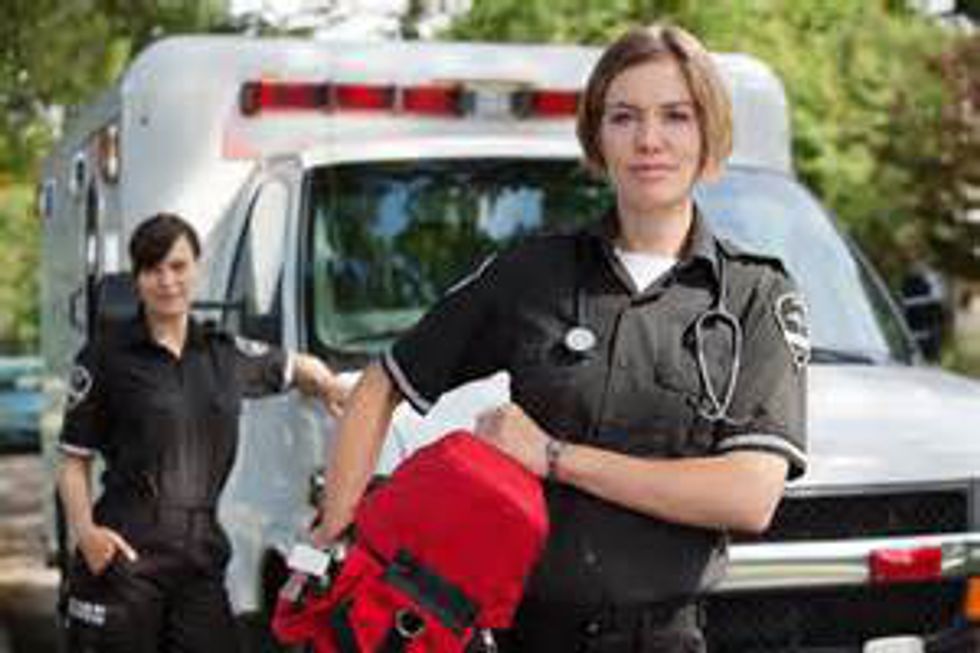Being an EMT is one of the most complex and high stress jobs there is. From jumping awake when the pager goes off to dropping everything as you hear those sirens, it is not just a job, it is a lifestyle. No matter what the call, you are there. I believe that with this job comes a great responsibility. The exciting part is not waiting for someone to have a bad day, it is being able to be there when someone does have a bad day, sometimes the worst in their life.
“The hardest job you will ever love” is a motto that I will always live by. Whether it is the midnight calls for an accident that could have been prevented, or children who are having trouble breathing, it is our job to be there. There also are good things that happen on calls. It is the cute old lady who has fallen and just needs help getting up, or the small child who has fallen off their bike and has a broken arm. It is satisfying to help someone in need. I love the feeling of satisfaction that comes with assisting anyone that needs it. There will always be people who need help because of this world we live in.
Lights flash and sirens blare down the middle of a busy street. The ambulance is a tool that is vital to the life saving process. It races to the scene of a person having heart problems or the scene of a car accident. It takes a privileged person to sit behind the wheel of this apparatus, and special people to sit in the back. I am privileged to be certified to sit in the back, saving lives. The adrenaline rushes through my body as we speed to arrive on scene. Sometimes the current situation is not serious, but you must be ready in case it takes a turn for the worst.
This is my view from the seat in the back of an ambulance. So many people have sat in the seat before me and many others will sit there after me. This is the seat where I started observing other EMTs as they took vitals on an unwell patient, or comforted someone as they were being transported to a hospital. An ambulance does so much more than just transport. It also stands on scene during fires as a station. Firefighters come out dreary and tired and experienced EMTs check their vitals to make sure they are well enough to fight again. I have experienced this on my own. During a hot August day, my department was called out to a local barn fire. The top hayloft had started smoking and they had been able to get the cows out in time. That day we spent more than seven hours fighting the fire with many hoses and pumps. Numerous departments came out to bring more manpower and interior firefighters. The job of the ambulance at this point was to be a cool down place and a spot for their vitals to be taken. I had to have my own vitals taken when I was standing at the hose. It was an experience I will never forget. The ambulance that day stood next to all of the trucks and, in a way, served as a saving grace.
On cold mornings when a patient calls with trouble breathing, it is the EMT who comes calling at the door. Sometimes the calls do not always go as planned. You could be called out on a routine call that is so basic such a an older person who fell down, but then you notice that they have internal bleeding, a turn for the worst that we were ready for. We were ready to help save their life. What starts as a chest pain call could turn into a heart attack. One thing I have learned is to expect the unexpected, and no call is ever just a normal call. Sometimes, it is necessary for our helicopter to be called in to rush someone to the hospital who does not have a lot of time left. The hardest parts of an EMTs career are the calls that involve children. When children are involved, it is often hard for an EMT to be composed and focused on the task. Not every EMT is able to work right after any incident involving children, and they often take time off. This is seen often in EMTs that have their own children back home.
Being a woman in the EMS field is not always seen as the normal. It is a man’s job to some, and females are too sensitive to actually be helpful. For me, it seems that to people who are not in need, they do not always appreciate the help from anyone. It is not until something happens and someone is there to help them. The same thing goes for volunteer firefighters and EMTs. Not many appreciate the value of a volunteer department until they are needed. One thing that I can say is to always appreciate your local department. You may not need them now, but there may be a day when you will.
Being an EMT is a noble and proud profession that I have the pleasure to be a part of. The EMTs that I work with are kind, and some of the best people I have ever met. From the serious calls to the small calls, I would not change my experience there. It feels like a noble task to be the person that is there when someone is having a bad day. Nothing compares to that feeling.




